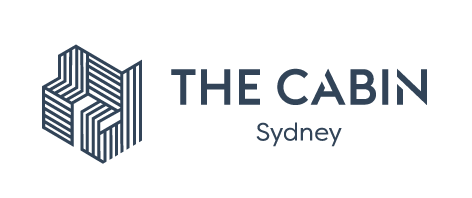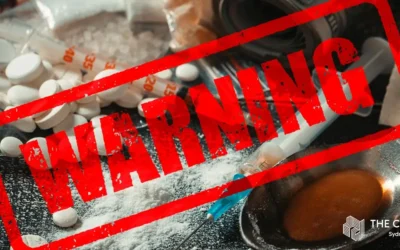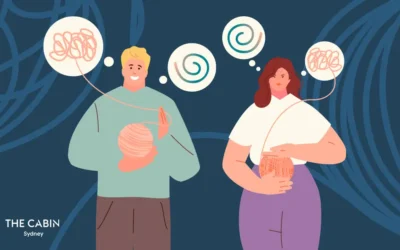Addiction is a complex condition that to overcome, for many people, requires professional help. A well-rounded treatment programme within a calming environment can help you recover and equip you with new life skills. This can be done in an inpatient or outpatient setting – but which should you choose?

Seeking Addiction Treatment
Addiction is a brain-based disease. Biologically speaking, it is a complex condition that results from a chemical imbalance in the brain’s reward centres, resulting in dopamine deficiency and lack of impulse control. Addicts suffer from symptoms like restlessness, irritability, profound boredom, discontentedness, and a dulled response to things in life that should be pleasurable. In order to avoid these symptoms, addicts will often self-medicate by using substances like drugs and alcohol, or processes like gambling and sex, all of which serve to increase dopamine levels in the brain, resulting in a ‘high.’
Substance abuse over time can also affect pathways in the brain, especially those that pertain to our ability to have feelings of pleasure or reward. Substance use may begin voluntarily, such as by the use of a prescription drug. However, as an addiction develops, a person’s ability to abstain from future drug use becomes compromised because of the way that the addiction patterns have altered the brain.
Many people who develop an addiction find it very hard to stop without professional help. If you have decided to seek addiction treatment, you’ll need to decide whether inpatient or outpatient rehab is right for you.
What is Outpatient Rehab and Who Is It For?
Outpatient rehab, also known as “dayhab,” is where clients attend daily or weekly treatment sessions but continue to live at home. Outpatient treatment is often the first course of action for people struggling with addiction.
Group and individual therapy sessions are essential components of an outpatient programme. In a supportive group setting, clients learn about addiction, their relationship to it, and what skills they need to manage it.
For high-functioning addicts, outpatient rehab can be a good option, as it requires less time commitment away from work or family. Outpatient rehab is often less expensive than inpatient rehab, while still offering the key components of an effective addiction recovery support programme.
Because clients return home each day after attending a counselling session, outpatient rehab requires more diligence on the client’s part to abstain from addictive behaviour, meaning this option may not be best, or even possible, for everyone seeking addiction treatment.
Benefits of outpatient rehab include:
- Minimal disruption to daily life – Clients are able to continue with their life routine (e.g. work, school or family obligations) and attend meetings or counselling for a couple of evening hours several times per week. Outpatient facilities are often conveniently located in city hubs, which can help with commuting.
- Cost-effectiveness – Outpatient programmes are usually significantly less expensive than inpatient programmes, since they do not require accommodation. However, they still offer the same intensive psychotherapy and group support programmes that can be experienced with inpatient residential rehabs.
- Family support – Addiction affects the entire family, and the outcomes of addiction treatment are often improved with family involvement. Living at home (providing this is not an addiction trigger) during your recovery means that you can readily access your family and friends for emotional support.
- Recovery in the real world – The most challenging stage of the addiction recovery process is reintegrating into your normal life, minus your former addiction related behaviour. With outpatient rehab, you are able to practice the skills you learn in treatment whilst engaging in your everyday environment.
If you have work or other obligations that require your physical attendance on a regular basis, feel unprepared to handle the intensive level of treatment that inpatient rehab requires, or feel that you can cope with your usual (potentially stressful) environment while you are undergoing treatment, outpatient treatment may be best for you.
What is Inpatient Rehab and Who Is It For?
Inpatient rehab involves a person living 24 hours per day in a treatment facility. This allows you to focus solely on recovering from your addiction while in a supportive, therapeutic environment. Many rehabs offer 30-day programmess. However, some are 60-, 90-day or longer stays, to further develop and maintain a recovery path.
When someone has been using drugs or alcohol extensively for years on-end, withdrawal symptoms can be severe. The first step in addiction recovery is detoxification, and this process can require medical attention in more severe circumstances. In this case, inpatient rehab is necessary, as it provides supervised detoxification, administration of necessary medication, as well as individual and group therapy within the context of a stable residential space.
This more intensive and structured level of treatment may also be most appropriate for addicts who have previously tried and failed to recover through an outpatient programme. Inpatient treatment is a great option for people looking to remove themselves from their current addiction triggers and focus entirely on recovery, without external influences or interruptions.
The benefits of inpatient treatment include:
- Seclusion from a tempting or toxic environment – Clients live in a secure, soothing, recovery-focused environment that is free of drugs, alcohol and other potential addiction triggers. Clients are able to form new, healthier life habits.
- Built-in structure – Clients are kept busy by following a full schedule that includes individual and group counselling sessions, exercise classes and other therapeutic activities. They can dedicate their days to making steps toward their recovery while having less time to dwell on cravings and negative thoughts.
- Holistic treatment – Inpatient treatment programmes generally offer complimentary therapeutic activities such as exercise, yoga, meditation and massage to enhance the benefits of psychological counselling.
- 24-hour medical and clinical care – Moderate detoxes can usually be performed onsite, and doctors and nurses are available to monitor newly detoxed clients for whom health concerns may arise. Furthermore, clients have round-the-clock access to clinicians should they experience challenges during the recovery process.
- Anonymity – Inpatient (like outpatient) rehabs have strict client confidentiality policies, which allows you to keep your treatment totally private.
If you need a medically assisted detox, need to remove yourself from factors like stress, friends or places that you are concerned may trigger you to use, and are able to take time off from your other obligations to focus completely on your recovery, inpatient treatment may be the best option for you. Learn more about when to consider an inpatient residential treatment centre.
Outpatient Addiction Treatment at The Cabin Sydney
The Cabin Sydney is a specialist outpatient addiction treatment centre dealing with substance addictions, such as alcohol and drugs, as well as process addictions like gambling, sex and compulsive use of the internet.
The first step in our intensive outpatient treatment programme at The Cabin Sydney is for you to come in for an assessment. Then, you can choose between one-on-one therapy or our highly successful Recovery Zones treatment programme. Most clients prefer Recovery Zones because they get to reap the benefits of both group therapy as well as individual counselling. Counselling sessions for family members to participate in are also available.
The typical intensive outpatient programme involves attending two to three group and one to two individual counselling sessions on evenings during the week, for a period of three to six months.
A less intensive level of outpatient treatment or Continuing Care sessions that help those who have recently completed an inpatient rehab programme to reintegrate into a normal life routine is also available.
Watch our informational video here.
Inpatient Addiction Treatment at The Cabin Chiang Mai
The Cabin Chiang Mai offers effective inpatient treatment for alcohol, drug, and process addictions. Treatment at The Cabin Chiang Mai is also based on our Recovery Zones model. We serve clients who have different addictions, or even multiple addictions, by using three core therapy components: cognitive behavioural therapy (CBT), 12-Step principles and mindfulness meditation.
The Cabin Chiang Mai has a round-the-clock medical team to monitor clients’ withdrawal symptoms. Clients are kept busy with physical fitness programmes, yoga, meditation, swimming, excursions and other activities. Check out The Cabin’s facilities and hear what clients have to say about their experience in Chiang Mai.
Choosing the Right Treatment Option for You
Both inpatient and outpatient rehab facilities offer a dedicated treatment approach to addiction recovery that includes a combination of group and individual counselling aimed at addressing underlying psychological issues, learning about the disease of addiction, while creating new life skills and a sober support network.
Honestly assessing your needs and the severity of your addiction will help you determine which type of treatment is right for you. Having a conversation with the treatment centre can help you to determine this. At The Cabin Sydney, we offer a phone consultation. To see how we can help you conquer your addiction and live the drug free life that you want, contact us today.


